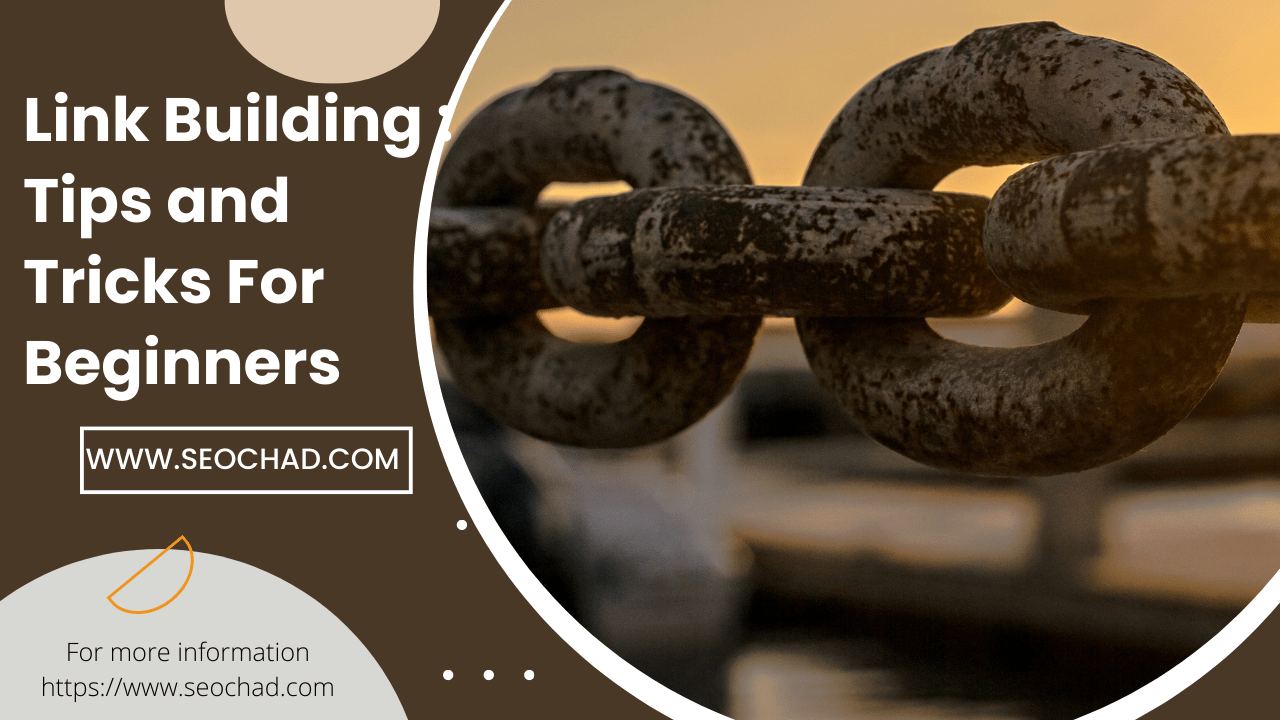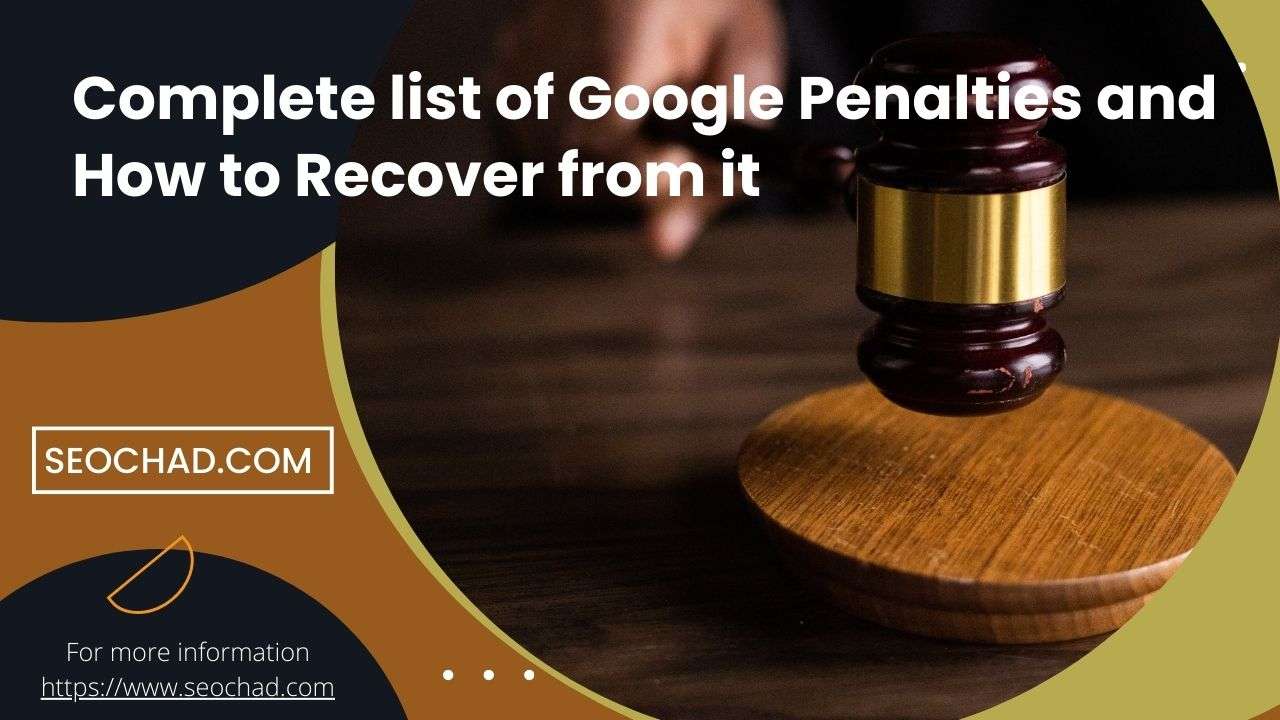Are you new to the world of link building and feeling overwhelmed by all the information out there? Don’t worry, we’ve got you covered! In this post, we’ll give you 10 essential tips and tricks to help beginners get started with link building. From understanding the basics to advanced techniques, we’ll cover everything you need to know in order to create a successful link building strategy. So grab a coffee and let’s dive in!
What is Link Building?
Link building is the process of acquiring links from other websites to your own. The primary goal of link building is to improve the search engine rankings of your website, though it can also lead to other benefits such as increased web traffic and referral traffic.
There are many different ways to build links, though some methods are more effective than others. The most common and effective link building techniques include guest posting, directory submission, social bookmarking, and forum posting.
Why is Link Building Important?
Link building is one of the most important aspects of SEO. It is the process of acquiring links from other websites to your own. The more links you have pointing to your website, the higher your site will rank in search engine results pages (SERPs). Link building is also important for driving traffic to your website.
Tips for Effective Link Building
If you’re new to link building, or just looking to brush up on your skills, these tips will help you get started on the right foot.
- Link to Relevant Content
When you’re adding links to your website or blog, make sure they point to relevant content. This will not only help your readers find the information they’re looking for, but it will also help search engines index your site more effectively.
- Use Anchor Text
Anchor text is the visible text of a link. When adding links, be sure to use descriptive anchor text that accurately reflects the target page’s content. This will help both users and search engines understand what the linked-to page is about.
- Get Quality Links
Not all links are created equal. When building links, focus on getting high-quality links from authoritative websites. These links will be more valuable than low-quality links from less reputable sites.
- Keep an Eye on Your Link Profile
Your link profile is a collection of all the links pointing to your website. Keep an eye on your link profile and monitor for any unnatural or suspicious patterns of link acquisition. This will help you avoid any penalties from search engines for engaging in link schemes or other black hat SEO tactics.
Identify Target Audience
Before you can start building links, you need to identify your target audience. Who are you trying to reach with your content? Once you know who your target audience is, you can start finding ways to reach them.
There are a few different ways to identify your target audience. First, consider who your ideal customer is. What demographics do they fit into? What interests do they have? Once you have a good understanding of who your ideal customer is, you can start thinking about where to find them online.
Another way to identify your target audience is to look at your competition. Who are they targeting with their content? You can use similar methods to reach the same audience.
Once you have a good understanding of who your target audience is, you can start thinking about how to reach them. There are a variety of ways to reach your target audience online. You can use social media, paid advertising, guest blogging, or even link building to reach them. The important thing is that you’re creating content that appeals to them and that you’re targeting the right channels.
Select Relevant Websites to Link from
There are a few things to consider when selecting relevant websites to link from. The most important thing is to make sure the website is relevant to your niche or industry. If you are a plumber, you wouldn’t want to link from a website about cars. You also want to make sure the website is high quality and has a good reputation. You can check the website’s domain authority (DA) using Moz’s free tool. The higher the DA, the better. You want to make sure there is something on the website that you can link to, such as an article or blog post. If there is nothing on the website for you to link to, then it’s probably not worth linking from.
Utilize Social Media Platforms
Social media platforms are a great way to build links. By posting interesting and engaging content, you can attract attention and get people talking about your brand. This can lead to organic link building opportunities, as well as potential paid partnerships.
Here are some tips for utilizing social media platforms for link building:
- Post high-quality content regularly. This will help you attract an audience and build a following.
- Make sure your content is shareable. Include share buttons on your blog posts and infographics so that people can easily share your content with their networks.
- Engage with other users. Respond to comments, answer questions, and join conversations relevant to your industry. This will help build relationships and make people more likely to link to your content in the future.
- Use hashtags strategically. Hashtags can help increase the visibility of your content and make it easier for people to find relevant information. Choose hashtags that are popular in your industry or niche, and use them sparingly so that they don’t come across as spammy.
- Run promotions and giveaways. People love free stuff! Offering promotional items or running contests is a great way to get people talking about your brand while also earning some high-quality links back to your website.
Develop Quality Content
As a beginner, one of the most important things you can do to improve your link building efforts is to develop high-quality content. This content can come in many forms, such as blog posts, infographics, videos, or even just well-written articles. No matter what form it takes, quality content will help you attract links from other websites.
One way to ensure that your content is of high quality is to make sure it is informative and keyword-rich. This will not only make it more likely that other websites will link to it, but also that people will actually read and enjoy it. In addition, be sure to format your content in an easily readable way and use images or videos to break up long blocks of text.
Don’t forget to promote your content once it’s published. You can do this by sharing it on social media or reaching out to influencers in your industry who might be interested in featuring it on their own website. By taking these steps, you’ll be well on your way to building quality links that will help improve your website’s ranking in search engines.
Use Internal Links
In order for your website to rank higher in search engine results pages (SERPs), it’s important to have a solid link building strategy. One key part of any successful link building campaign is using internal links. Internal links are links from one page on your website to another page on your website.
There are many benefits of using internal links. First, they help search engines crawl and index your website more effectively. Second, they help boost your website’s SEO by increasing the number of relevant keywords that search engines can find on your site. Third, they improve the user experience by helping visitors navigate your website more easily.
When adding internal links to your website, there are a few things to keep in mind. First, make sure that the link is relevant to the content on the page where it’s placed. Second, use keyword-rich anchor text (the text that appears when you hover over a link) to help improve your website’s SEO. Don’t overdo it – too many internal links can actually hurt your SEO.
If you’re looking for more tips on how to improve your website’s SEO, be sure to check out our blog post on the subject.
Create Infographics and Videos
If you want to get noticed online, one of the best things you can do is create infographics and videos. People love visual content, and if you can create something that’s both informative and visually appealing, you’ll be sure to grab attention. Not only will this help you build links, but it can also result in more traffic and shares.
When creating infographics and videos, be sure to include a call-to-action so that viewers know what to do next. For example, you might include a link back to your website or blog so that people can learn more about your business. You can also promote your content on social media sites like Twitter and Facebook for even more exposure.
Establish Guest Blogging Relationships
One of the best ways to build links is through guest blogging. By writing articles for other blogs in your industry, you can get your name and your website in front of a whole new audience. But how do you find guest blogging opportunities?
There are a few different ways. You can start by reaching out to blogs that you already read and admire, and seeing if they’re looking for guest contributors. Or, you can use a tool like Google’s Blog Search to find blogs that accept guest posts.
Once you’ve found some potential guest blogging opportunities, the next step is to reach out to the blog owners and pitch them an article idea. If they’re interested, they’ll usually provide you with some guidelines for what they’re looking for. Once your article is published, be sure to promote it on social media and encourage your followers to check it out!
Create Resource Pages and Landing Pages
One of the most effective ways to build links is to create resource pages and landing pages on your website. By creating valuable resources that other websites can link to, you’re not only increasing the chances that they’ll link to you, but also providing valuable content for their readers.
Some ideas for resource pages and landing pages include:
- A list of helpful tips or tutorials related to your industry
- A directory of businesses or services in your area
- A calendar of events happening in your community
- A guide to local attractions or landmarks
Conclusion
Link building is a powerful tool for improving your website’s visibility in search engines. With the right strategies and techniques, you can effectively boost your online presence and reach more customers. We hope that our 10 tips have helped equip you with the knowledge to start building strong links on your own. If you need help getting started, consider reaching out to an experienced SEO professional who can provide advice tailored to the needs of your business. Good luck!




